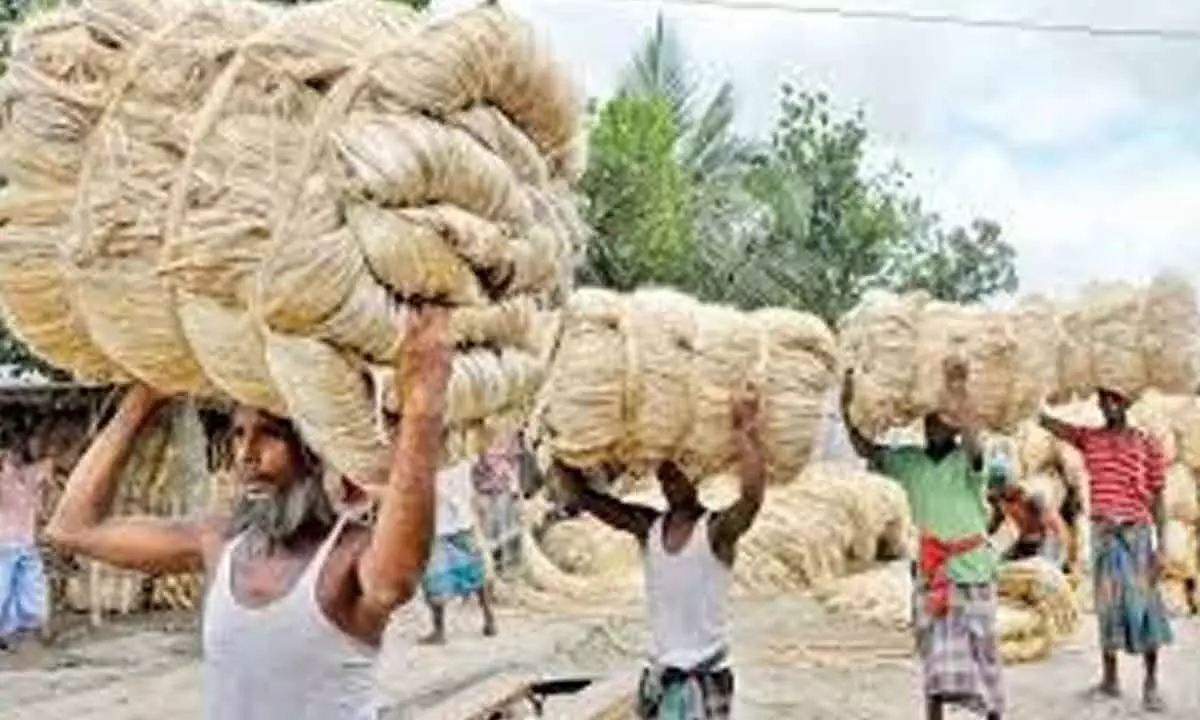Imports from Bangladesh worsen jute sector crisis
In a letter to the textile minister, the Jute Balers’ Association has raised concerns over unregulated import of raw jute
image for illustrative purpose

Jute Sector concerns:
- 73,000 bales were imported in June 2024 from Bangldesh
- Prices of the golden fibre fell below Rs 5,000 per quintal
- Association called for rigorous crackdown on illegal jute imports
Kolkata: A body of jute suppliers has written to Union Minister Giriraj Singh, alleging that raw material imports from Bangladesh, either directly by mills or through third parties, have adversely impacted the industry and farmers. In a letter to the textile minister, the Jute Balers’ Association has raised concerns over the “unregulated import of raw jute” from the neighbouring country and “low orders” for mills have led to a severe payment crisis for domestic raw jute suppliers. Indian Jute Mills Association has also raised concerns over the issue and sought intervention from the central and state governments to tide over the crisis. A meeting between the industry stakeholders and the ministry is expected later on Monday, an official said.
The balers’ association, which has been serving the sector for over 115 years, outlined the critical issues threatening the industry’s survival. “Despite a bumper crop year in 2023-24, where domestic supply was sufficient, mills have continued to import large quantities of raw jute from Bangladesh. In June 2024 alone, 73,000 bales, or 22 per cent of the total 3,34,000 bales, were imported,” Jute Balers’ Association secretary Pulak Jha said in the letter. “There is an opening stock of 3 million bales of raw jute for the jute season as of July 1, 2024, and the new crop is also around the corner. These factors caused prices to plummet below the minimum support price (MSP),” Jute Balers’ Association senior functionary Om Prakash Soni said.
Prices of the golden fibre fell below Rs 5,000 per quintal, while the minimum support price (MSP) is Rs 5,335 per quintal for the 2024-25 season, he said. There has been a bar on the use of imported jute in making bags for food grain packaging but the “influx of cheaper and low-grade jute from Bangladesh has exacerbated the crisis”, an industry stakeholder said. “With mills facing liquidity issues, payments to suppliers are getting delayed, hindering their ability to purchase fresh jute from farmers.

